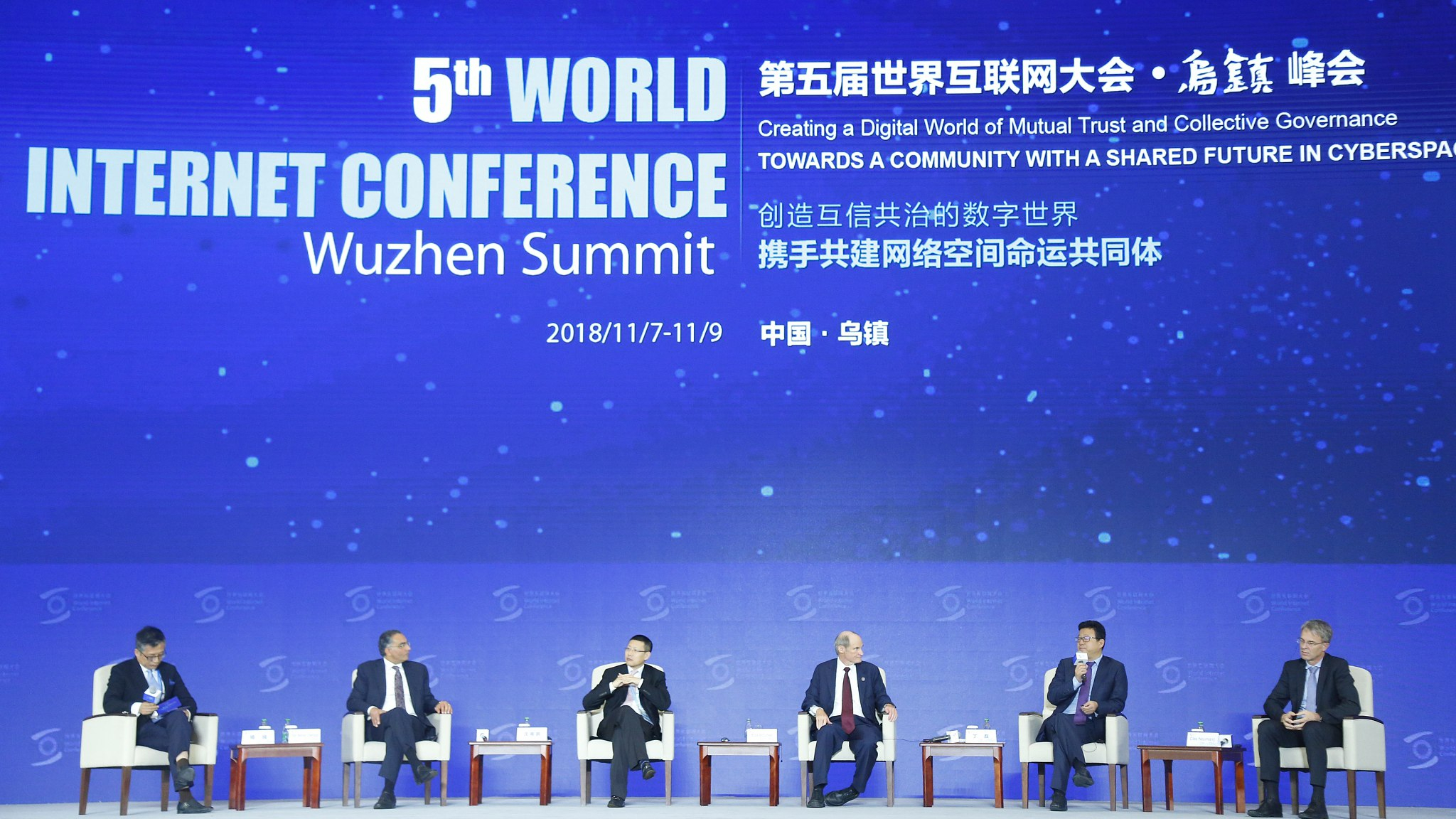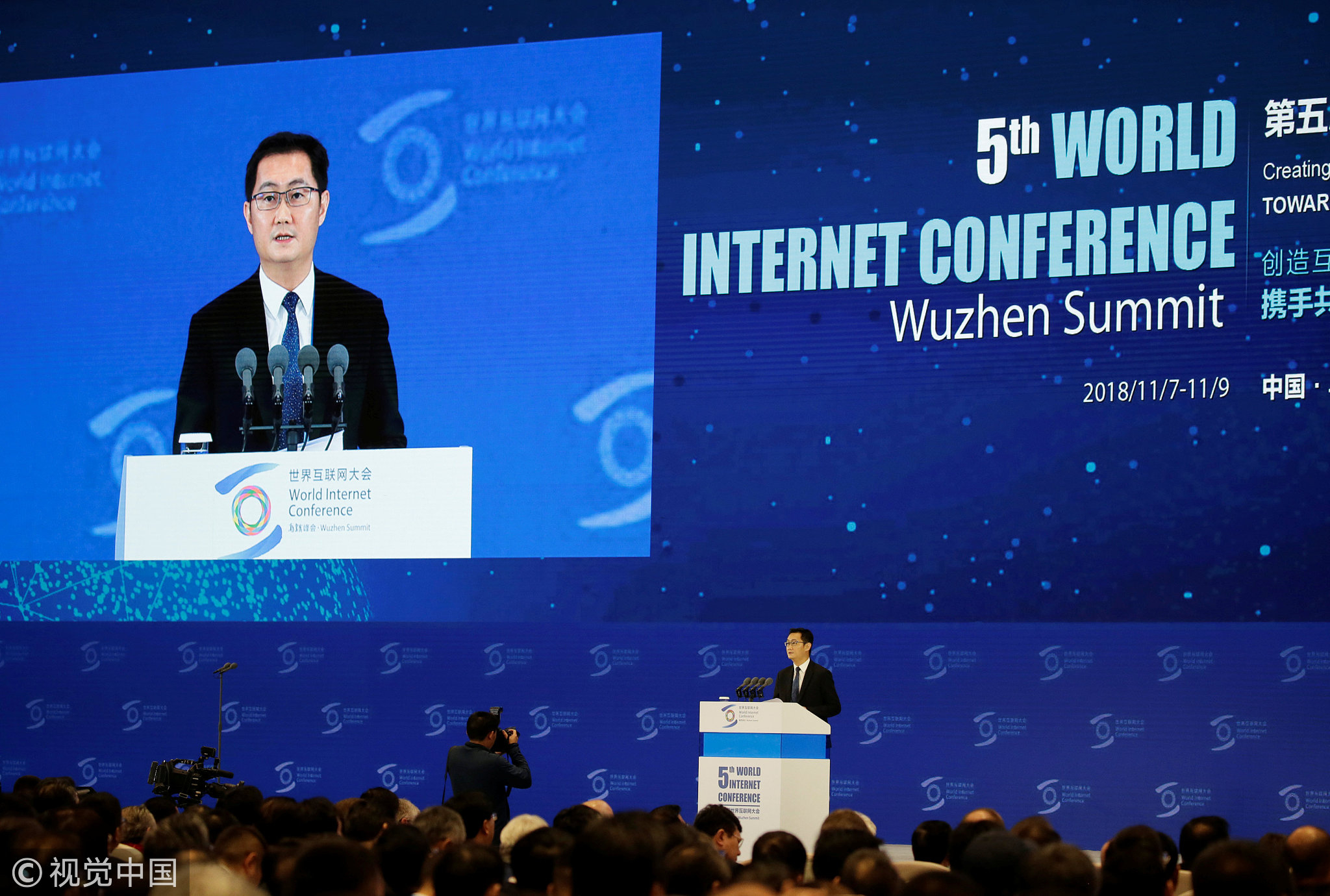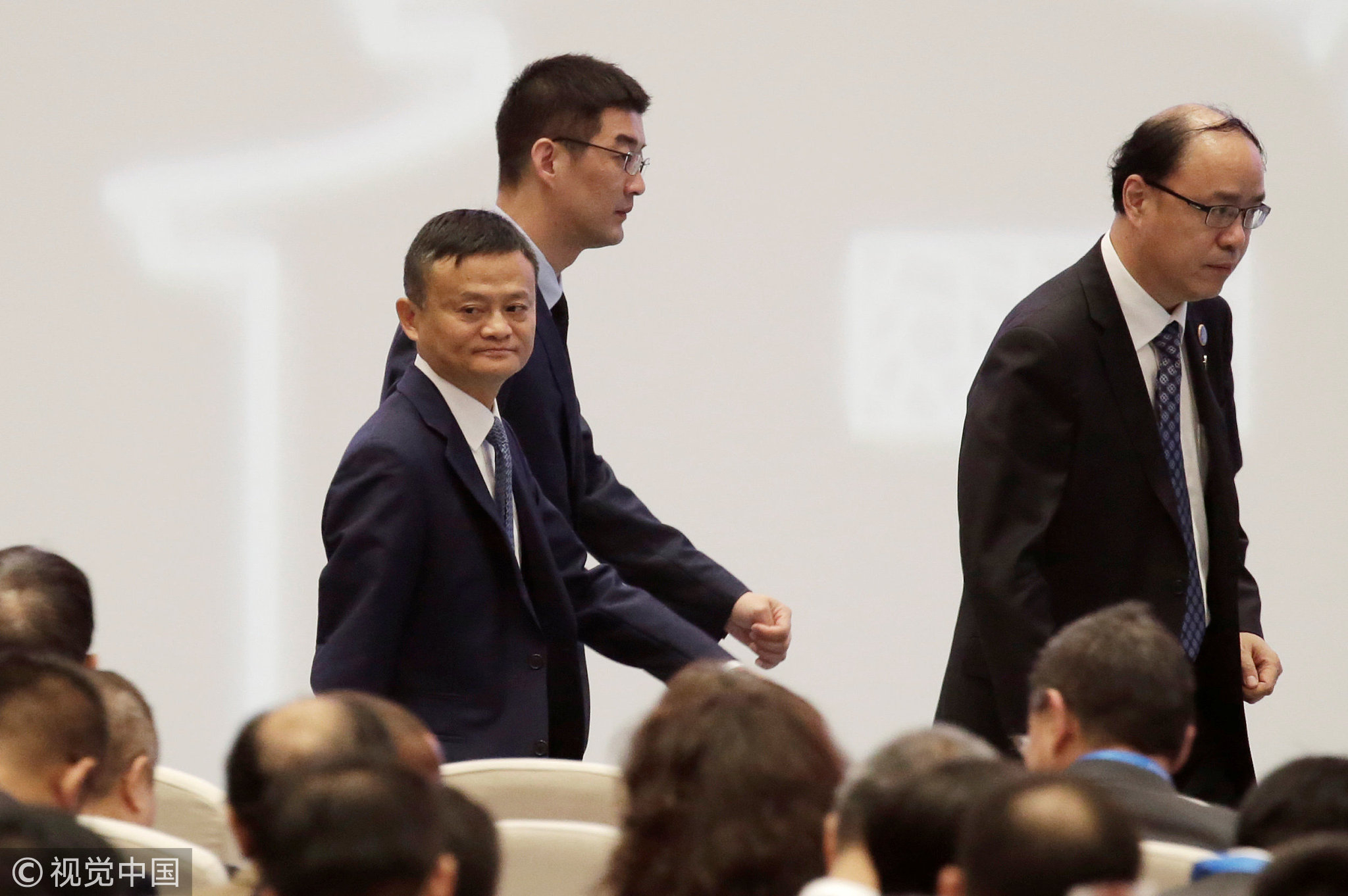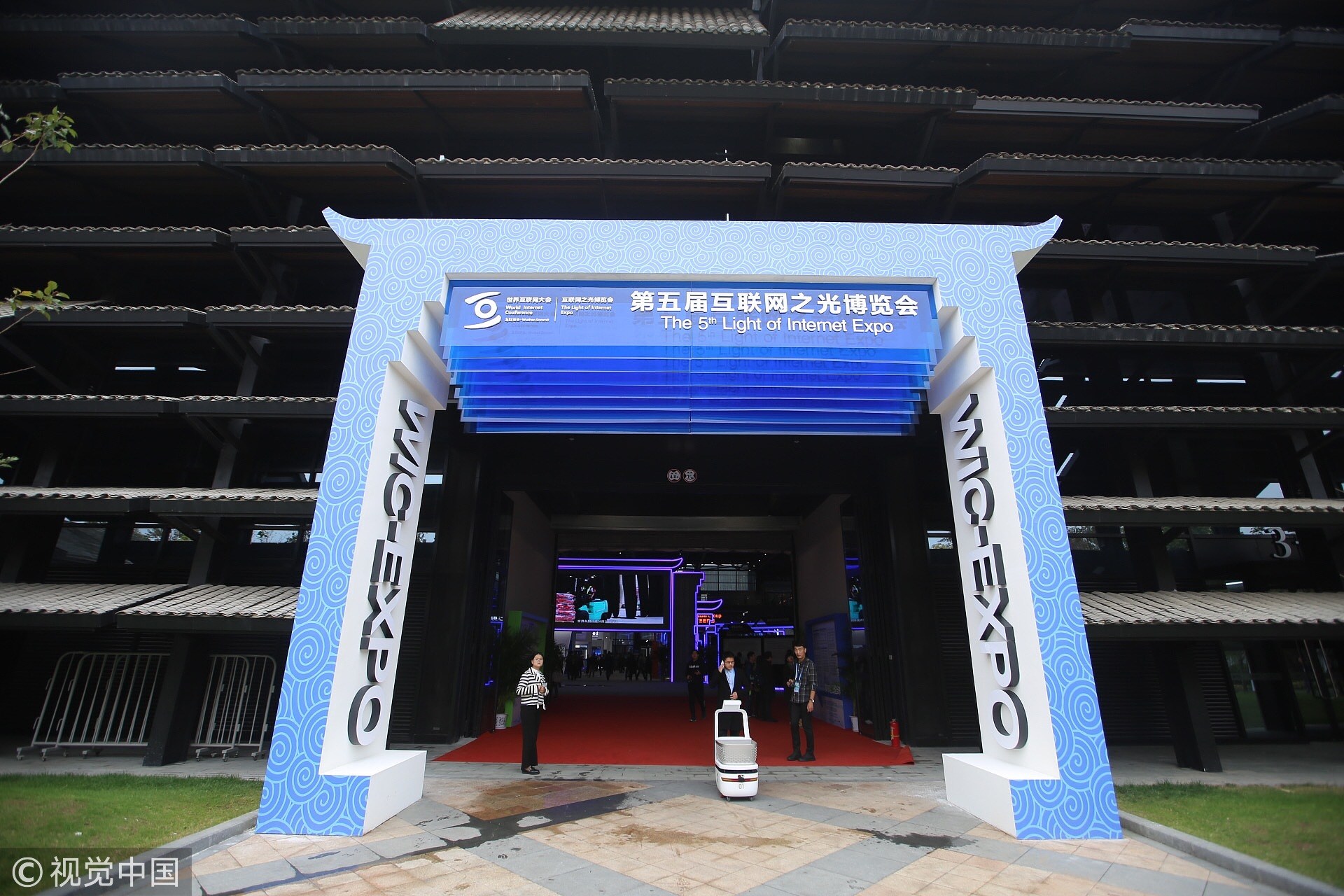
Opinions
19:27, 07-Nov-2018
Opinion: Xi's congratulatory letters urges Internet companies to accept new role
Updated
19:10, 10-Nov-2018
Kong Qingjiang

Editor's note: Kong Qingjiang is the dean of the School of International Law at the China University of Political Science and Law. The article reflects the author's opinions, and not necessarily the views of CGTN.
The fifth World Internet Conference is being held from November 7-9 in Wuzhen, a small watertown in east China's Zhejiang Province. The conference aims for building an international platform for China's interconnection with the world and a platform for international Internet sharing and governance, promoting global common prosperity, enhancing the development of global digitalization, and establishing a sustainable digital world.
Chinese President Xi Jinping sent a congratulatory letter, in which he hailed the technological revolution associated with the Internet, big data and artificial intelligence (AI) and the achievement of the digital economy that has been made by Chinese and foreign Internet companies.
It is widely believed that China is an economy that has the potential to set the world's digital frontier and even redefine the world's digital economy in coming decades.

Tencent Holdings Ltd. Chairman and CEO Pony Ma speaks at the opening ceremony of the fifth World Internet Conference (WIC) in Wuzhen, Zhejiang Province, China, November 7, 2018. /VCG Photo
Tencent Holdings Ltd. Chairman and CEO Pony Ma speaks at the opening ceremony of the fifth World Internet Conference (WIC) in Wuzhen, Zhejiang Province, China, November 7, 2018. /VCG Photo
For example, China is the world's largest e-commerce market, accounting for more than 40 percent of the value of worldwide e-commerce transactions. China has also become a major global force in mobile payments with multiple times the transaction value of the United States.
Moreover, China is one of the top three countries in the world for venture-capital investment in key types of digital technology, including virtual reality, autonomous vehicles, 3D printing, robotics, drones and AI.
Indeed, the development of the digital economy in China has become an irreversible trend. As a matter of fact, it is now in the fast lane.
All this is attributable to the market size and the market penetrability of the digital technology, as well as the entrepreneurship, which relies on the Chinese ecosystem suited to the development of the digital economy.

Alibaba Group co-founder and Executive Chairman Jack Ma attends the opening ceremony of the fifth World Internet Conference (WIC) in Wuzhen, Zhejiang Province, China, November 7, 2018. /VCG Photo
Alibaba Group co-founder and Executive Chairman Jack Ma attends the opening ceremony of the fifth World Internet Conference (WIC) in Wuzhen, Zhejiang Province, China, November 7, 2018. /VCG Photo
Notably, the private sector has played an irreplaceable, if not the most important, role in nurturing the digital economy. In the Chinese context, the big players in the digital economy are private companies without exception.
According to a study by McKinsey, one in three of the world's 262 unicorns (start-ups valued at over 1 billion US dollars) is Chinese, commanding 43 percent of the global value of these companies.
Baidu, Alibaba, Tencent (collectively known as BAT) and other digital innovators such as Huawei, JD, Xiaomi and Netease etc., which form the backbone of the Chinese digital economy, are private companies. It is those companies that help shape the ecosystems of the digital economy in China.
A proper role of the government was also indispensable to the formation of such ecosystems. Digital economy is primarily driven by technological innovation that calls for stronger protection of rights, including intellectual property rights.
It is sensitive to the environment. In this regard, the Chinese government has been playing an active role in building world-class infrastructure to support digitization as an investor, developer and consumer.

The fifth Light of Internet Expo is held during the fifth World Internet Conference (WIC) in Wuzhen, Zhejiang Province, China, November 6, 2018./ VCG Photo
The fifth Light of Internet Expo is held during the fifth World Internet Conference (WIC) in Wuzhen, Zhejiang Province, China, November 6, 2018./ VCG Photo
Notably, the Chinese government moved to regulate the digital sector only after a delay, which gave innovators plenty of space to experiment regulations took effect.
As the market has matured, both the government and the private sector have gradually become more proactive in shaping healthier digital development through regulation and enforcement.
President Xi encouraged all stakeholders to pool their efforts to promote the digitalized development and build a sustainable digital world. In this context, private enterprises shall grasp the golden opportunity for their own development by taking a ride on the rapid development of the digital economy.
He expressed his hopes that the digital economy will be given a spur and global cyberspace governance will be promoted, so as to provide momentum to the global economy.
One can expect that Chinese Internet companies will play their due role in this process, as they have helped nurture a favorable ecosystem at home.
(If you want to contribute and have specific expertise, please contact us at opinions@cgtn.com.)

SITEMAP
Copyright © 2018 CGTN. Beijing ICP prepared NO.16065310-3
Copyright © 2018 CGTN. Beijing ICP prepared NO.16065310-3